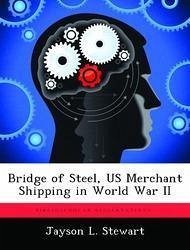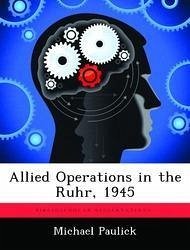
Bridge of Steel, US Merchant Shipping in World War II
Versandkostenfrei!
Versandfertig in über 4 Wochen
53,99 €
inkl. MwSt.
Weitere Ausgaben:

PAYBACK Punkte
27 °P sammeln!
The only feasible method of transporting divisions of personnel and equipment is, and used to be, by sea. What planning, management and coordination of shipping requirements existed within the US Army and civilian agencies prior to and during World War II? The US Navy had limited transport shipping and the US Army had even fewer. In order to support the millions of personnel and millions of tons of equipment used in the war effort, the maritime capabilities of the civilian sector needed to fill the void. This existed not as a new role for the merchant fleet, nor a new challenge for government ...
The only feasible method of transporting divisions of personnel and equipment is, and used to be, by sea. What planning, management and coordination of shipping requirements existed within the US Army and civilian agencies prior to and during World War II? The US Navy had limited transport shipping and the US Army had even fewer. In order to support the millions of personnel and millions of tons of equipment used in the war effort, the maritime capabilities of the civilian sector needed to fill the void. This existed not as a new role for the merchant fleet, nor a new challenge for government of the United States. Only the scope would be different when one compares WW I to WW II--a two-ocean as opposed to one-ocean war in the latter case. There lacks a method to measure the levels and effectiveness of the coordination and planning beyond the end result. The resulting success of the US in its military endeavors during WWII can be somewhat misleading about the effectiveness of the coordination and planning between the Army and civilian agencies. No nation has produced a tonnage of shipping in a four-year period that exceeds that of US during WWII. The British focused on the production of warships, particularly escorts to wage the Battle of the Atlantic. The Union of Soviet Socialist Republics lacked production capability as they conducted a land war against Germany. The Japanese did not have access to as many resources to produce the numbers the US did, even though the Japanese Empire expanded considerably by aggressive use of their navy. This monograph is a historic study of US wartime merchant shipping during WWII. The purpose of this study is to understand the structure, conditions, and material considerations necessary to conduct trans-continental major combat operations. This monograph maps the sequence of events necessary to make maritime logistical support for Atlantic and Pacific operations possible. The first main section discusses the state of US maritime c












